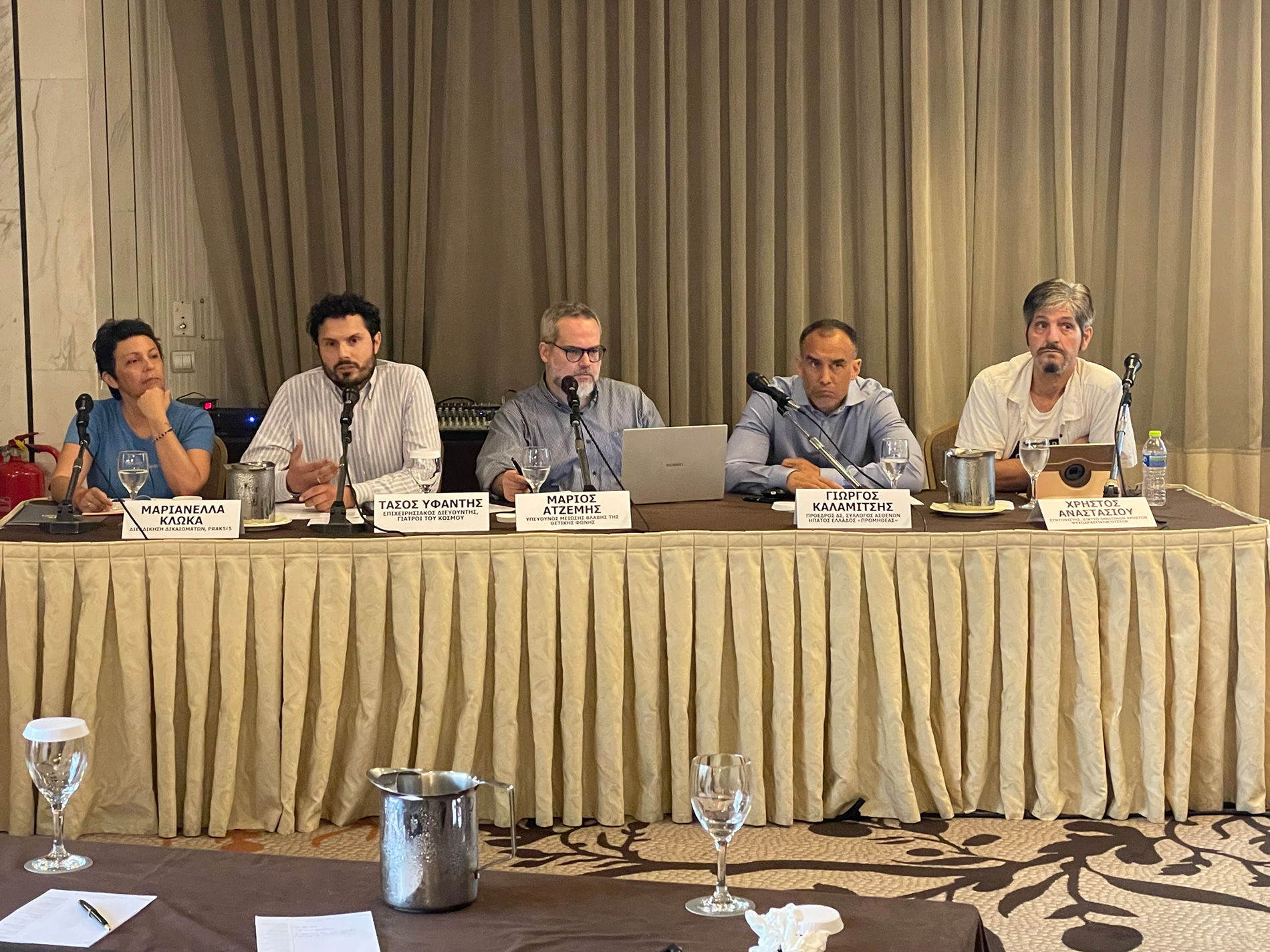MdM-Greece: The public policy cycle on drugs must be inclusive
On the occasion of International Day Against Drug Abuse, Médecins du Monde Greece attended an NGO press conference on the next day for drug policy.
Despite the positive steps that have been taken in recent years, Greece has an unusually high mortality rate among injecting drug users, compared to other countries.
MdM-Greece, along with other NGOs intervening in the field, are calling on the new government to take steps to improve user access to the health system and strengthen harm reduction programmes. They call for strengthening existing structures, user participation in decision-making, addressing stigma and access to all available treatments.
The serious problems that exist and the proposals to address them were presented at a press conference organised by the PeerNUPS. The event, entitled: “The next day for drug policy” was held with the support of the organizations “PRAKSIS” and “Médecins du Monde Greece” as well as the Greek Association of people living with HIV “Positive Voice” and the The Hellenic Liver Patients Association “Prometheus”.
Multiple health risks
“In the urban centres of the country, on a daily basis, dozens and sometimes hundreds of people live in miserable conditions, trying to cope with their dependence on psychoactive substances,” said among others the operational director of MdM-Greece, Anastasios Yfantis.
“These people are in great need and at the same time exposed to multiple risks to their health and life, especially after a period of development of new psychosocial care programmes, where all stakeholders had the expectation of mitigating risks and reducing the number of homeless people facing addiction issues”, he underlined.
“Yet today we continue to identify among the key health demands for homeless people in use, the need for ongoing care for serious abscesses and infections, as well as rapid diagnostic testing and direct linkage to the National Health System. While all too often people with mental health comorbidities are seen who need immediate assistance and are excluded from housing programmes,” he added.
“The public policy cycle for drug policy in the next day must be inclusive, based on achievable and tangible results and the principles of Harm Reduction,” he said. “This is why the involvement of the community and civil society itself in the formulation and implementation of drug policy is crucial,” he concluded.

Respect for rights
Christos Anastasiou, coordinator of the PeerNUPS, said: ‘User involvement in decision-making enables people to make choices according to their needs and preferences. Respecting the individual’s right to choose the medicine that suits them recognises their personal autonomy and promotes personalised treatment.
Offering a range of evidence-based options and involving patients in the decision-making process dramatically improves treatment outcomes. Access to all modern and available opioid agonist treatments can reduce all the risks associated with illicit drug use and stabilize individuals’ lives.
Tailoring treatment based on factors such as medical history, mental health conditions, and treatment efforts increases their engagement and retention in services. Informed consent ensures that individuals have necessary information about benefits, risks, and side effects. Now these must be respected in our country too!” .
The president of Prometheus, Mr. George Kalamitsis stressed that: “Alarmingly high mortality among injecting drug users, which far exceeds the corresponding data from the countries of the Western world, has been recorded in recent years in our country.
The recent change in the legal framework extending the possibility of using naloxone to the general population is an important step in protecting injecting drug users. Naloxone administration prevents deaths only in the case of opioid overdose.
The causes of the increased mortality are also rooted in the long-standing pathologies facing the NHS. In particular, users face serious problems in accessing health services and this is due to the lack of health professionals and the stigma and discrimination they face when trying to access health structures.”
Stigma and how to deal with it
Mrs. Mariannella Kloka, on behalf of PRAKSIS, focused on the stigma and its treatment. Among other things she said: “The use of language in public discourse can support political approaches, reinforce or deconstruct stereotypes. In the field of psychoactive substance use, language, content and its visualisation through opinion makers and the media is another area of intervention for our organisations.
For the past 7 months PRAKSIS and the Network of Peer Users of Psychoactive Substances have been supporting the initiative of the National Coordinator for Drugs by organizing workshops for journalists and health professionals who deal with the issue of drug use, as well as people who use drugs. Our common goal is to reflect and make suggestions on how language, audiovisual description and choice of content can inform more comprehensively and create bridges of coexistence and acceptance.”
At EU level
For his part, Mr. Marios Atzemis, Harm Reduction Officer of Positive Voice, referred among other things to the priorities set by the Spanish Presidency of the EU, where, according to him, the emphasis has been placed on highlighting the fight against HIV stigma and discrimination as one of the main lines of action. It is worth noting that the last time HIV received any political attention at EU level was in 2017!
Further the Spanish Presidency in its upcoming meeting with us in Civil Society Forum on Drugs has raised the issue of the mental health of problem users and has already received feedback. There is a direct link with this and the situation we are facing on the front line, specifically with shisha and the mental health burden of its problem users.
Finally, Mr. Atzemis stressed the need for our country to align with the European Drug Strategy and the corresponding Action Plan, which propose the active and meaningful participation of civil society and the affected community in the design and implementation of services and policies that directly affect their lives.